|
In April of 2024, Dr. Flavia Biroli visited the CSB and SJU campus to present her research, part of the Global Awareness Lecture Series. Dr. Biroli's research on far-right politics and gender in Brazil is much needed. The study mapped and analyzed the far-right politics on gender during the government of Jair Bolsonaro (2019-2022). The talk will discuss its developments considering two issues: abortion and gender-based violence. Previous research found that the degree of conflict and the actors involved vary according to the issue. Historically, disputes on abortion are contentious and involve religious actors and perspectives. The politicization of violence against women had a distinct trajectory, reaching a broader consensus expressed in legislation and policy. The convergence between conservative religious activism and the far-right affected these dynamics – not only in Brazil or Latin America, as studies on Eastern/Central Europe identify similar displacements. Still, far-right politics activates distinct mechanisms to block feminist politics in these two issues. I discuss these mechanisms, connecting them to the disputes over democratic institutions and values. Based on that, I make the point that there is a tight connection between the struggles over gender and the present and future of liberal democracies. Below is her talk:
0 Comments
By Eliana Schmaltz After a quick three weeks filled to the brim with travel, tummy warming food, and good company, I finally had some time to slow down and reflect on what I have all experienced, observed, and learned. I was surrounded by people that I have known for such a short amount of time but still felt so comfortable and at home. As I sat watching the kids play at the party, my mom would circle around every so often to send more food in my direction, a lot of which she made herself for days in advance. My sister, Ana, covers for me and tells mom I ate my hot dog when I didn’t. I think the only word to describe how I was feeling was content. I realized there were only moms and their kids at the birthday party. I asked Ana about this, and she said the dads typically see events like this as a waste of time. This stood out to me because Ana had emphasized how these big birthday celebrations were culturally very popular. Reflecting on my three weeks here, I realized how heavily my experience was influenced by women. I lived with my mom, Ana, and Clair. Multiple times a day our neighbor Louanna would come over as well as Mom’s daughter Amanda, Amanda’s girlfriend, and another lady that lives downstairs. While I couldn't always understand the language, I immediately could tell they were all strong, confident women. My subtopic for the course was violence against minorities. In Brazil it is estimated that one woman was affected by violence every four minutes in 2017 and an average of 13 women were murdered each day (Araujo 2021, 123). While I originally learned that this spring, the statistic became even more painful after being in Brazil. In another study, it was found that positions such as head of the family, family provider, and exacerbated sexuality are social attributes of masculinity that incite gender-based violence (Silva 2020). The literature surrounding violence against women, points to gender norms and toxic masculinity as being the driving factors of this generational and cultural violence. Looking within my household, my Mom strongly followed gender norms. On her “get to know me” form, she listed housework as her hobbies. Within our apartment complex, the residents typically were middle aged and white. This didn’t surprise me seeing as we lived in a nice building and racial inequity is a major issue in Brazil. In 2006, Brazil moved slightly down in the ranking of the world's most unequal countries when it was moved from eighth to tenth (Pacheco 2008, 714). There was consistently construction going on throughout our route to ICR. Every person we saw performing manual labor throughout our three weeks was Black. Little instances like this were observable almost every day. For a country with such blatant racial inequities, it is shocking to see these issues overlooked. While homicide occurs globally, we can statistically see that it happens at higher rates in Brazil than in most countries. This is especially true when we look specifically at the LGBT community. According to the World Health Statistics 2019, there were an estimated 477,000 deaths globally due to homicides in 2016. Brazil accounted for around 12.8% of this total, representing the seventh largest homicide rate in the Americas (WHO 2018). My mom's biological children and our host sister Ana are all part of the LGBT community. They do not hide it in public, which I only thought of because of the high rate of violence. The overwhelming amount of violence against minorities that I read about in the U.S. was heartbreaking to read. However, now that I have met people that fall into these vulnerable groups, I am even more disturbed by the danger. If my siblings are anxious about being a part of the statistic, they do not show it at all. If anything, their confidence within themselves seems to reflect their confidence that this violence can change too. Araujo, Victor, and Malu A. C. Gatto. 2022. “Can Conservatism Make Women More Vulnerable to Violence?” Comparative Political Studies 55, no. 1: 122-153. Pacheco, Tania. 2008. “Inequality, Environmental Injustice, and Racism in Brazil: Beyond the Question of Colour.” Development in Practice 18, no. 6: 713–725. Silva, Andrey Ferreira da, Nadirline Pereira Gomes, Júlia Renata Fernandes de Magalhães, Fernanda Matheus Estrela, Anderson Reis de Sousa, Jordana Brock Carneiro. 2020. “Social Attributes of the Male That Suscept the Violence by Intimate Partner.” Rev Bras Enferm 73, no. 6 (June): 1-7. World Health Organization (WHO). 2018. “World Health Statistics 2018: Monitoring Health for the SDGs.” WHO. https://www.who.int/gho/publications/world_health_statistics/2018/en/.  Eliana (Ellie) Schmaltz is a rising junior at the College of Saint Benedict. She is pursuing a degree in political science and sociology in the hopes to attend law school after graduation. After law school, she would like to be a family lawyer and give back to the community that raised her. Ellie is originally from a small town called Eden Valley located in Central Minnesota. She looks forward to learning more about Brazilian culture and experiencing everything the scenic country has to offer while studying abroad in Salvador. By: Fabian Venegas-Ramos and Lizbet Martinez On campus, we conducted research on trans experiences, rights, and activism in Brazil, which painted an image we had of Brazil prior to our study abroad experience, particularly one where the rights and dignity of trans people are not protected and upheld. Trans people, at the intersection of race and class, are one of the most marginalized and oppressed groups in Brazil, with growing numbers of trans violence and murders, and a myriad of obstacles caused by transphobia, like discrimination in employment, education, healthcare, and access to gender-affirming services. According to the local activist group, the National Association of Transvestites and Transsexuals, “175 trans people were killed in 2020” (Thomas 2021). Additionally, data from Trans Murder Monitoring reveals that Brazil is the number one country with the highest rate of trans murders, which disproportionately consists of Black trans people (Rodriguez 2019). During our time here in Salvador, Brazil, we have been able to make observations regarding LGBTQ+ inclusion, listen to guest speakers, and even navigate being trans in Brazil (Fabian). We were fortunate to have listened to a lecture from Viviane Vergueiro. The informal conversation centered around the challenges that trans people face in Brazil as well as the work that she does that helps combat these challenges. Through this lecture, we learned about the various types of discrimination and violence that the LGBTQ+ community encounter in the education and healthcare systems. She explained to us that it isn’t uncommon for certain doctors to turn away patients because they are trans. Braz finds this in his research stating, “From the interviews, many of the conflicts experienced in doctor’s offices could be avoided if they [interviewees] had their gender identities respected” (2019, p. 5). The acceptance of gender identity, particularly in healthcare, is important for trans people to receive dignified and quality treatment. Viviane ultimately reinforced much of our findings from our research conducted on campus. As a trans person living in Brazil, these narratives highlight how cultural, social, and political changes are needed to improve the daily lives and experiences of trans people in Brazil. She states that much of the violence trans people experience is rendered invisible and such violence is racialized, which are part of the ongoing extermination project of trans people by the colonial state. This is in part fueled by religious ideologies that are weaponized against trans bodies, particularly through a pathologizing, invasive gaze that mark trans people as “other.” Additionally, Viviane powerfully stated that being indifferent to the violence trans people and other marginalized communities experience is an act of violence and fuels the settler colonial project. Thus, it is critical to be aware of the issues different communities face, to care, and to take action to change the social and material realities of trans people in society. My experience as a trans feminine person visiting Brazil has been a positive one (Fabian); however, trans Brazilians have a very different reality from mine, which is largely shaped by the protection my privileged class and national identities offer me. This includes navigating Brazilian contexts as a student and tourist, which have been limited to public areas. On one hand, I navigate the public areas that are considered main points of violence and discrimination for trans people, including but not limited to harassment, physical attacks, verbal abuse (Calling 2020, p. 7). Fortunately for me, walking in and being part of a crowd with White Americans comes with protection and equal treatment. On the other hand, I have also not had to experience institutional violence from navigating the different institutions in Brazil such as the workforce, the education system, the healthcare system, among others, which have been recognized as being violent for trans bodies. As argued by one researcher, waiting is an essential category for describing the experiences of trans men in Brazil, particularly in healthcare settings (Braz 2019, p. 1). Waiting reveals structural power dynamics, which shape trans peoples’ experiences in healthcare settings. This shows how mundane daily activities like waiting are shaped by gender dynamics, which have profound consequences for marginalized gendered peoples and implications for their health and wellbeing. This is one example of the complex and nuanced experiences trans people have when navigating institutions in society. The LGBTQ+ scene is visible in Bahia, especially within the nightlife scene. In Salvador, where we have been living, LGBTQ+ couples walk around freely, and I haven’t noticed those around them staring or judging them (Lizbet). There were also plenty of options for gay bars in the area. Viviane spoke to us about the increasing use of inclusive pronouns and changing gendered language. From Vianna we learn that “Despite certain level of permeability of the Lula government to women and LGBT movements…the power relations that determined the tradition of parameters supporting gender relations in our society still limit the possibilities of consolidating concepts such as gender and sexual diversity as defining factors for public policies in education and, in so doing, destabilizing heteronormativity and, above all, homophobia” (2015, p. 800). While there has been some progress in previous years, there is still a lot of resistance to the inclusion of LGBT rights to the government’s agenda when it comes to public policy. Our hope for the future is that with more education and people coming to together in support, the people of Brazil can further push for LGBTQ+ rights and will be heard. Braz, Camilo. 2019. “Lives on hold? Itineraries in access by trans men to health services in Brazil and Argentina.” Cadernos de Saude Publica 35(4): 1-11 doi: 10.1590/0102-311X00110518 Calling, Nikita Lourenço. 2020. “Stigmatization and Discrimination: A Qualitative Case Study of the Transgender Community in Brazil.” Lund University Rodrigues-Sherley, Marcela, and Karla J. Strand. “Activism Is Survival for Brazilian Trans Women.” Ms. Magazine, October 9, 2019. https://msmagazine.com/2019/08/01/activism-is-survival-for-brazilian-trans-women/. Thomas, Jennifer Ann. “Threats against Trans Councilwomen Stir Violence Fears in Brazil.” Reuters. Thomson Reuters, February 5, 2021. https://www.reuters.com/article/us-brazil-lgbt-rights-trfn-idUSKBN2A52EF. Vianna, Claudia P. 2015. “The LGBT movement and the gender and sexual diversity education policies: losses, gains and challenges.” Educação e Pesquisa 41(3) https://doi.org/10.1590/s1517-97022015031914  Fabian Venegas-Ramos is from Immokalee, Florida. They are a senior, soon to be graduate of the College of Saint Benedict and Saint John's University. They will be receiving their bachelor's degree in Sociology and Gender Studies. Fabian is passionate about social justice, and queer and trans rights and activism. They look forward to immersing themselves in the Brazilian culture through music, dance, and food!  Lizbet Martinez-Port is a senior at the College of Saint Benedict studying political science and Hispanic studies. She is from Minneapolis, Minnesota and enjoys learning about topics that intersect within her majors. She is passionate about immigration reform, as well as other social justice issues. On campus, she sings, dances, and acts. She looks forward to learning about a new culture and language during her time abroad in Brazil. By Ryan Engel and Zach Jans As we end our time here in Brazil, we are going to share some of our final observations and connections. We have made several connections from what we have seen and learned here to what we learned early this semester. However, we will continue to share a couple that we thought really stood out. One lecture that stood out to us was the lecture by Major Denice. She has been a police officer in Brazil for 32 years, and she spoke to us about discrimination against women in Brazil. From her lecture, one thing that stood out to me was that the highest a woman can get in the police ranking is the third highest. No woman moves past that ranking. Right away, we thought it was crazy that a woman who has been a cop for 32 years is stuck in the same ranking and cannot go any higher. As we thought about it more, we realized that this idea significantly connected to the subtopic that we researched (violence against minorities). From our research earlier in the semester, there was a quote that greatly related to this note. The quote stated, “policewomen clearly saw themselves as discriminated against, as women, in their police careers—they could cite endless accounts of male counterparts who ‘didn’t think they could handle the tougher cases’ and so on” (Hautzinger, 2002, 247). The connection here is that male police officers do not take the women in their field as seriously as themselves. Therefore, this leads to women being stuck in the lower rankings of the police force. This exemplifies how women are discriminated against in the workplace and in society in Brazil. Another lecture that stood out to us was a lecture regarding Trans Rights in Brazil. The biggest fact that was reiterated in this lecture was that murders of trans people happen most in Brazil. Along with that, our speaker believes that this issue is largely due to a systemic issue in the country and not an individualistic issue. It was interesting to hear that because we are having a lot of doubts about our system here in the US regarding racial discrimination and gun violence. However, a quote from my research earlier in the semester backs the statement of trans violence being a systemic issue. It states that “it is important to note that there was limited information on perpetrators, primarily due to the underreporting of these crimes. This happens due to the inefficiency of Brazil's criminal justice system, leading to a lack of effective measures to address homophobia” (Mendes, Furtado Passos da Silva, 2020, 1713). This quote highlights a great example of how the system is failing society here in Brazil. The underreporting and limited information on these crimes towards trans people just sends a larger message that the government and those in charge do not prioritize these specific minorities. Another experience that we found interesting was our day trip to Cachoeira. While in Cachoeira, our visit to the Danneman cigar factory stood out to me because there were aspects that seemed to go against the norm of Brazil and also aspects that seemed to follow the gender norms in Brazil. When thinking back to the readings, I feel as if this quote by Silva comes to mind when thinking about the cigar factory. “The Oral History of the participants reveals that the dominance over women, position as head of the family, family provider, and exacerbated sexuality are social attributes of masculinity” (Silva, et al., 2020). I feel as if this quote is challenged a bit when it comes to the cigar factory. As men are usually the providers and women tend to stay home, every employee making cigars in the factory was a woman. This is something you typically do not see in Brazil. Although females were the ones working and producing the cigars, there was still an aspect that followed the gender norms in Brazil. While all the females were at work and doing the manual labor, the person overseeing the whole process and making sure everything was running smoothly was a male. The man was not doing any of the dirty work and was there just doing what seemed to be “monitoring”. This followed most of the theories that we read about before coming to Brazil and showed the male dominance that all articles talk about. A quote from one of the readings that reminded me of this dominance was, “Even when women have paid work activities, and they have a superior financial situation than that of their partners, to the point of promoting the livelihood of the home, the role as head of the family usually remains as belonging to the man” (Silva, et al., 2020). This quote seems fitting because the females may have a paid work activity, but there is always a man in a superior power. Works Cited Hautzinger, Sarah. Rep. Criminalising Male Violence in Brazil's Women's Police Stations: From Flawed Essentialism to Imagined Communities 11. No. Vol. 11. 3. Carfax Publishing, 2002 Mendes, Wallace Góes, and Cosme Marcelo Furtado Passos da Silva. Rep. Homicide of Lesbians, Gays, Bisexuals, Travestis, Transexuals, and Transgender People (LGBT) in Brazil: a Spatial Analysis, 2020. Silva, et al. “Social Attributes of the Male That Incite the Violence by Intimate Partner.” REBEn, 2020.  Ryan Engel is a sophomore at CSB/SJU, pursuing a major in Accounting/Finance with a minor in Communications. He is originally from Green Bay, Wisconsin. Ryan enjoys broadening his horizons by traveling and learning about different places, people, and cultures. He is also a sports fanatic, including playing soccer at Saint John's University. He looks forward to exploring a new part of the world while studying abroad in Brazil in May 2022  My name is Zach Jans and I am finishing my sophomore year at SJU. I am currently an Elementary Education and Political Science double major. I am from St. Michael, MN. A big reason I like learning about teaching and why I am excited to be a teacher is that I look forward to finding ways to motivate all students and be a role model for young students. I have always been involved with sports, playing baseball and basketball my whole life, until college. I stay active in intramurals. Outside of school, I like to golf, hangout with friends and family, and spend time at my cabin. By Kailee Hagl and Hailey Karnowski There are many political and social expectations we thought we would experience and observe while in Brazil. Throughout the semester, we studied race, gender, and inequality in Brazil. We read literature that focused on the LGBTQ+ community, political ideologies, environmental issues, and much more. In our study abroad portion of the class, we have observed and experienced specifics that either confirm or deny our expectations of Brazil after reading scholarly literature. We also find it important to address common misconceptions that we were able to debunk through our observations here. Much of our research prior to our trip to Salvador included the movements, notably high violence, discrimination, and misconceptions surrounding LGBTQ+ rights. With Brazil being the massive, diverse country that it is, we assumed that much of this could be visible amongst society and in the media in Brazil. According to one of our authors, Omar Encarnación, Brazil is “world-renown for celebrating sexual diversity and gender non-conformity” and persists in social movements despite political backlash (Encarnación, 2018). On Monday, May 17th, some of our expectations of the visibility of the LGBTQ+ movements were supported. Our trip to Pelourhinho, Salvador happened to be the same day of an LGBTQ+ historic day. Sure enough, hundreds of people crowded the streets celebrating the day of anti-homosexuality. Other than this one account, the appearance of LGBTQ+ culture and acceptance have yet to be seen—although this could be due to differences in culture and expression amongst the LGBTQ+ community in Brazil. Importantly, our research regarding LGBTQ+ rights in Brazil highlighted the high rate of violence against transgender and other LGBTQ+ individuals. With Brazil being one of (if not) the most dangerous countries for LGBTQ+ identifying individuals to live, we expected there to be some sort of acknowledgement of the presence of the transgender and gender non-conforming community. One article we explored mentioned not only the violence against LGBTQ+ members, but the negative actions such as deadnaming and religion enforcing that persists in Brazil as well (Calling, 2020). Again, we expected to see or hear about some of these encounters while being immersed in the Brazilian culture, but it is more than possible that the unfamiliar language spoken and lack of exploration of the entire culture has limited our observations. Despite this, we did expect to see more openly expressive LGBTQ+ and gender non-conforming community members than we have thus far. The literature about environmental issues addresses the ever-expanding urbanization of the country as well as the fight to preserve vegetations, especially the Amazon. So far in Brazil, we have seen how much of the larger cities are constructing more and more housing. This confirms our expectations as previous literature has stated metro areas in Brazil are expanding and deforestation is occurring. One author concludes, “Despite the effort to integrate the activities of conservation and preservation with the demands for expansion of the city, urban areas are still advancing on remaining vegetation areas” (Young 2013, 113). This also addresses our expectations as we expected to see efforts of conservation in populated areas that are continuing to grow. We constantly see workers planting trees and various plants; however, we also see buildings in construction everywhere. Therefore, what we have observed while abroad have both confirmed and denied our expectations. There are also common misconceptions that are important to address when discussing Brazil. The first is that Brazil is a poor country. This is not the case as Brazil has one of the quickest growing economies and is rich in natural resources. The country has a steadily increasing GDP as well. Although there are many poor areas with hillside houses, there are also many rich areas with skyscrapers. The second common misconception is that Brazilians do not experience racial inequality since they are essentially a melting pot of race and culture. This is also false, and there is literature to help confirm; “Inequality persists in Brazilian society and black activists have struggled to create a more equitable society” (Mitchell-Walthour 2017, 20). The inequality Afro-Brazilians experience affect them in all aspects of their lives, especially education. While abroad we learned about the Brazilian education system and how the system is rigged to benefit the rich and white, while making it harder for those who are black or poor to get into a federal university after high school. This confirms that Brazilians do experience inequality in their everyday lives. Overall, there are many political and social expectations we thought we would experience and observe while in Brazil, and our lectures, experiences, and observations have helped us to come to these conclusions. A final thought to keep in mind would be that everything is not always as it seems, and actually observing and experiencing something for yourself is an efficient way to conduct research and find answer to our hypotheses. References Calling, Nikita. 2020. “Stigmatization and Discrimination: A Qualitative Case Study of the Transgender Community in Brazil.” Lund University LUP Student Papers. https://lup.lub.lu.se/student-papers/search/publication/9011192 Encarnación, Omar G. 2018. “A Latin American Puzzle: Gay Rights Landscapes in Argentina and Brazil.” Human Rights Quarterly 40 (1): 194–218. https://search-ebscohost-com.ezproxy.csbsju.edu/login.aspx?direct=true&db=aph&AN=127958474&site=ehost-live&scope=site. Mitchell-Walthour, Gladys. 2017. The Politics of Blackness: Racial Identity and Political Behavior in Contemporary Brazil. The Politics of Blackness: Racial Identity and Political Behavior in Contemporary Brazil. https://doi.org/10.1017/9781316888742. Young, Andrea. 2013. “Urbanization, Environmental Justice, and Social-Environmental Vulnerability in Brazil.” In Urbanization and Sustainability: Linking Urban Ecology, Environmental Justice and Global Environmental Change, 95–116. https://doi.org/10.1007/978-94-007-5666-3_7.  Kailee Hagl is a junior at CSB/SJU and is majoring in Political Science with a focus on law. She also is pursuing a minor in Hispanic Studies, as well as a minor in Latin American Studies. She is originally from Sauk Centre, Minnesota. Kailee enjoys learning about politics in other countries, social justice issues, and analyzing court cases. She looks forward to applying her experience abroad to her academics in her final year at CSB/SJU.  Hailey Karnowski is a rising senior at the College of Saint Benedict, pursuing a major in sociology and minor in political science. She is originally from Farmington, Minnesota. Hailey is the new president of the CSB rugby team and works for IT Services. She hopes to work in social work or criminology after graduating and is looking forward to gaining new experiences and perspectives while studying abroad. |
Archives
June 2024
Categories
All
|
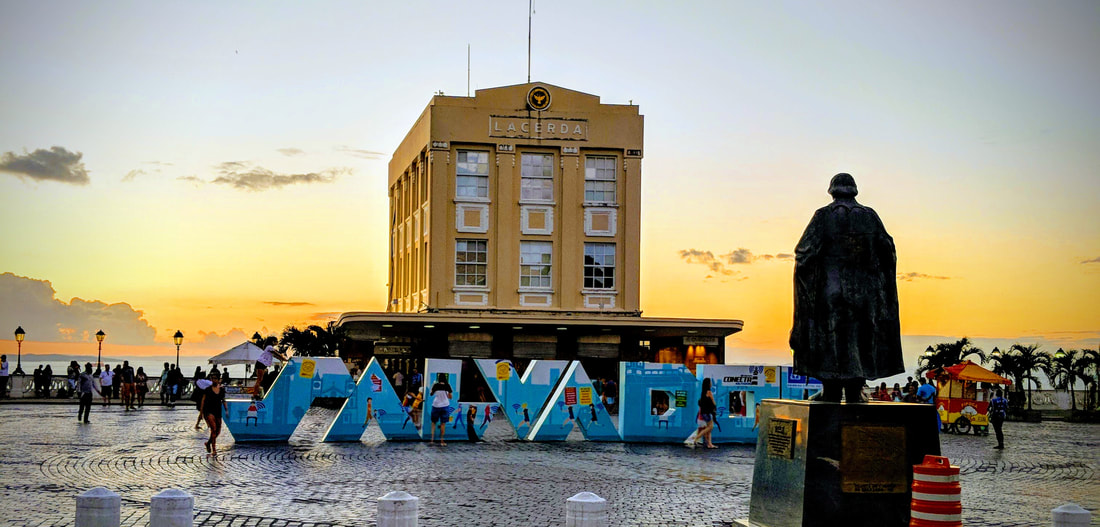
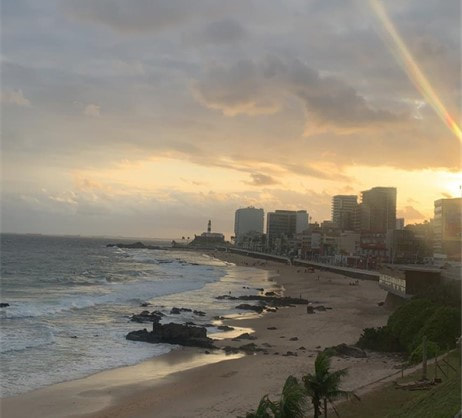
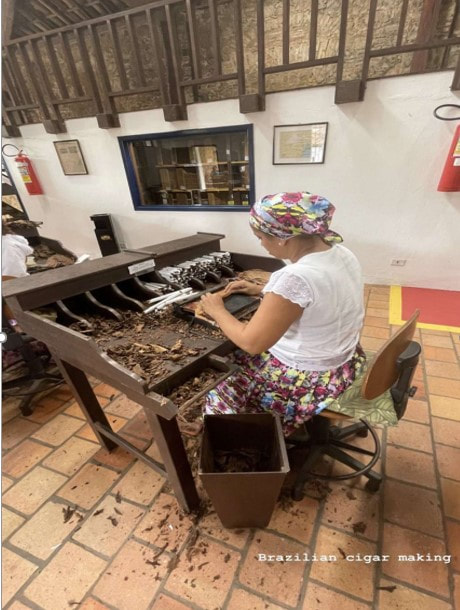
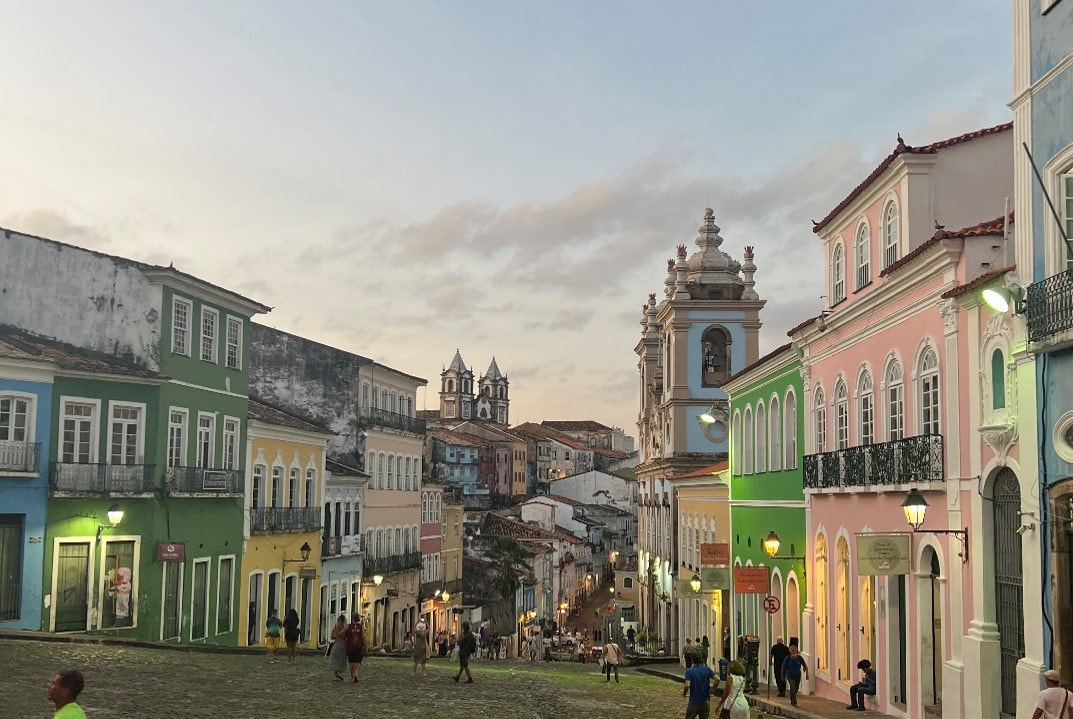
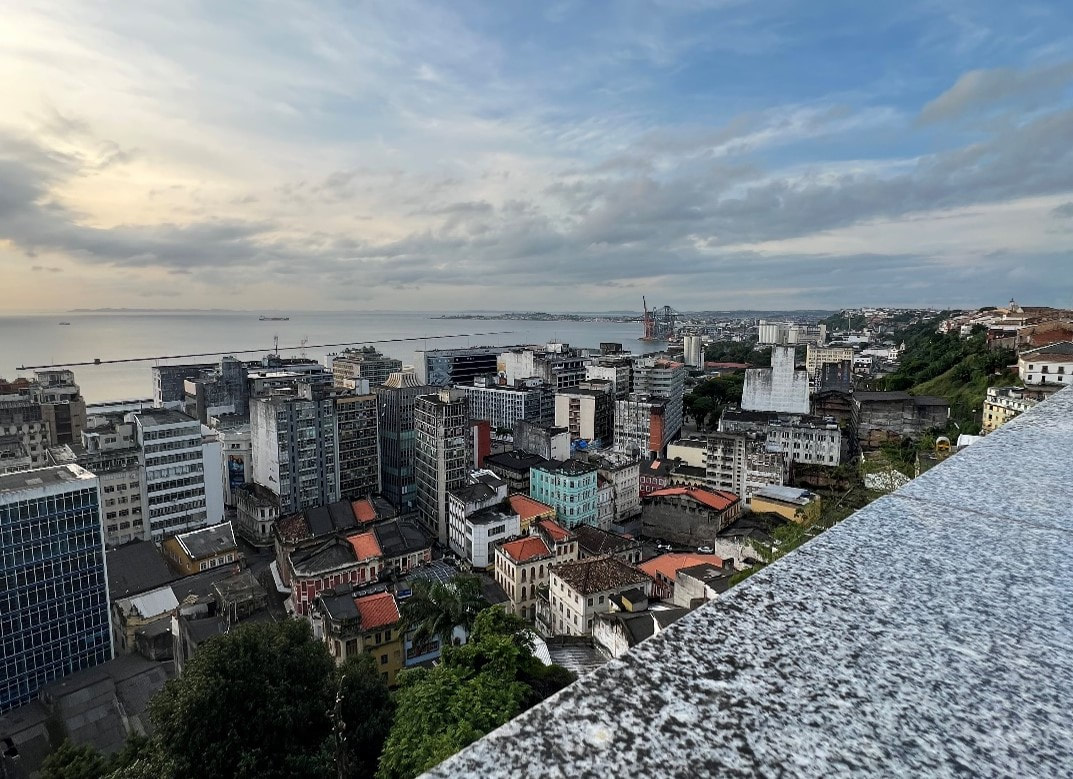
 RSS Feed
RSS Feed
